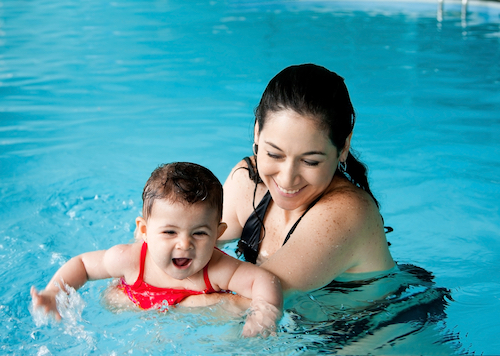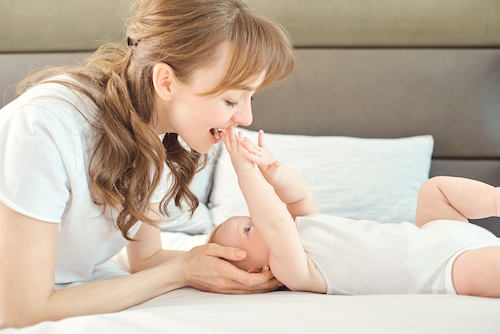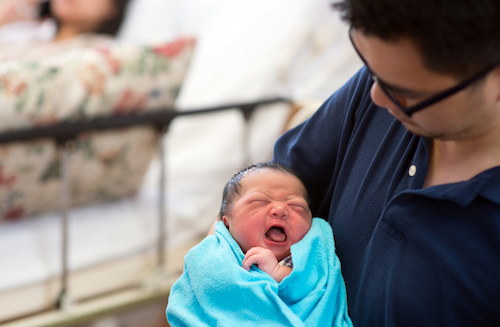If you are due to give birth in Germany, you will find yourself in the hands of a healthcare system that is high in quality and organised to suit the needs of all parents and their newborn babies.Having a baby in Germany empowers expectant mothers with a wealth of knowledge, from the homeopathic to the latest advancements in technology.
Midwives, or Hebammen, will guide you through each stage and meet with you at various appointments, including as many as nine ultrasound examinations over the course of your pregnancy. At every stage, you will be provided with as much information as possible, since German law requires patients to be able to make fully informed decisions regarding their care.
Mothers-to-be can choose to deliver their babies in hospital, in a birth house, or at home, with each option covered by health insurance. Private maternity care is also an option for expats.
Anyone residing in Germany must be registered with a German health insurance scheme to have maternity costs covered. If you are also working in Germany and paying into the country’s social security scheme, you will be able to claim maternity or paternity leave. There are further benefits available following the birth of your baby, including childcare allowances and child benefit.

Your state insurance will cover the basic costs of pregnancy in Germany. You may, however, be charged additionally for some of the paperwork involved. If you opt to give birth in a private hospital, you will need to check what is covered and what may be charged as extra.
As soon as you suspect that you might be pregnant, you can arrange an appointment with your community midwife. They will then arrange for you to be seen by a hospital consultant who will register the pregnancy. This appointment is important as it entitles you to go straight to the maternity unit as soon as you are in labour.
As expectant parents, you can visit the maternity unit of your local hospital as part of a scheduled tour. During this visit, you can meet with hospital midwives and view the delivery suites and postnatal wards.
Throughout your pregnancy, any health professionals who care for you will record your progress, and that of your baby, on a dedicated maternity record (Mutterpass). This is an important document that you will need to take with you to every appointment, including the delivery suite when you are in labour.

If you choose to give birth in a hospital, your baby will be delivered by your midwife. Traditional delivery options are available, as are water births. Doctors are available to step in if there is an emergency, and pain relief is readily available, including epidurals.
Typical hospital stays following the birth of a baby last three nights, or five in the event of a caesarean section. Following the delivery, you will be moved to a postnatal ward of two to four beds, or you can pay extra for a private family room where your partner or companion can stay overnight with you.
If you would prefer to give birth at home, you can hire a specialised midwife, called a Hausgeburt, to assist you. This option is best suited to uncomplicated pregnancies, though if there is an emergency, you would always be immediately transferred to a hospital.
A birth house, or Geburtshaus, provides the homely atmosphere of giving birth outside of a hospital alongside the careful management of a team of midwives. However, there is no emergency care on-site, so in the event of complications, your midwife would call an ambulance to take you to the nearest hospital.
Regardless of where they choose to deliver their babies, for the first seven months of pregnancy, most women typically see their gynaecologists every four weeks for routine tests, including weight and blood pressure monitoring and foetal scanning. Under standard health insurance, expectant mothers in Germany are also offered three ultrasound scans.

When the time comes to deliver your baby, it can help to phone ahead to the delivery suite so they know to expect you, though this is not mandatory. When you arrive, you will be asked to provide your maternity record to the hospital midwife, who will use it to confirm your hospital registration. You will also have the chance to talk through your birthing preferences with medical staff, if there is time. This is in lieu of a birth plan, though your wishes will be respected and accommodated as far as possible in much the same way.
You will need to bring the following with you:
• Maternity record
• Child Health Record (used to record baby’s measurements and examination results)
• Your birth certificate
• Your marriage certificate, if applicable
National policy prohibits the use of nitrous oxide (gas and air, colloquially) for pain relief but provides a range of alternatives, including epidurals, massage, and TENs machines.
You should pack your hospital bag to contain all that you will need during your stay, including anything that might make your delivery experience more comfortable as well as essentials like nightwear, toiletries and towels. The hospital will, however, provide clothes for your baby.
You should note that you will be asked for the name of your baby shortly after birth, which sets Germany apart from other countries where you may have longer to commit to a suitable moniker.
After your baby is born, they will be subject to a heel prick test to check for abnormalities as well as a being given a vitamin K injection; they may also be vaccinated against hepatitis and tuberculosis.
You can expect to stay in hospital for 3-5 days following the birth and, before you leave, you must collect a notification of birth (Geburtsmeldung). This document enables you to register your baby in Germany, which is a legal requirement. You will also need a suitable child seat in order to take your baby home by car.
Postnatal care is primarily administered by your community midwife with follow ups from a health visitor. Most children have regular check-ups from birth until the age of five.
Would you like to share your experience of life abroad with other readers? Answer the questions here to be featured in an interview!

